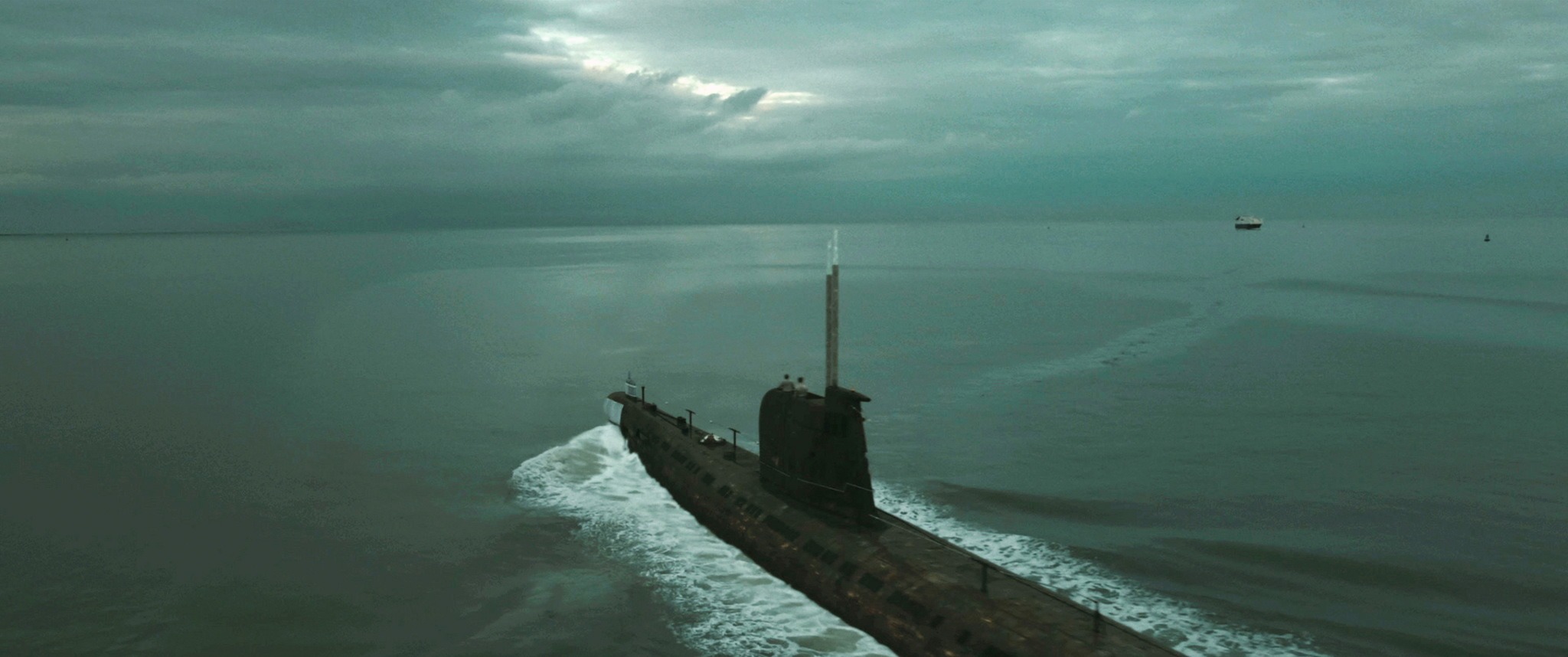Tears of the Sun (2003)

Released in 2003 and directed by Antoine Fuqua, “Tears of the Sun” is a war drama that blends action with an exploration of moral dilemmas and humanitarianism. Set against the backdrop of a fictional conflict in Nigeria, the film stars Bruce Willis, Monica Bellucci, and Cole Hauser. With its focus on the ethical challenges faced by military personnel and the human cost of war, “Tears of the Sun” offers a compelling and emotionally charged narrative. This essay delves into the film’s plot, character development, visual style, thematic elements, and its impact and reception.
“Tears of the Sun” follows the story of a U.S. Navy SEAL team led by Lieutenant A.K. Waters (Bruce Willis), who is tasked with a mission in Nigeria during a brutal civil war. The plot centers around the team’s operation to extract a humanitarian worker, Dr. Lena Fiore (Monica Bellucci), from the war-torn region. As the team arrives in Nigeria, they discover that their mission is more complicated than anticipated.
Dr. Fiore works for a non-governmental organization providing aid to refugees in a remote village. When the SEAL team arrives, they learn that the village is being targeted by rebel forces, and Dr. Fiore’s work has made her a target. The initial mission to extract Dr. Fiore becomes a moral quandary when she insists on staying to help the villagers who are in imminent danger.

As the situation escalates, Lieutenant Waters and his team are faced with a difficult decision: whether to follow orders and abandon the villagers or to risk their own lives to ensure their safety. The narrative follows the team’s journey as they navigate the dangers of the conflict, confront their own ethical dilemmas, and ultimately make a sacrifice for the greater good.
The plot is characterized by its intense action sequences, harrowing combat scenes, and emotional depth. The narrative structure blends elements of military action with a humanitarian crisis, creating a dynamic and engaging story.
Bruce Willis’s portrayal of Lieutenant A.K. Waters is a central element of the film. Willis brings a strong sense of duty, leadership, and moral conflict to the role. Lieutenant Waters is depicted as a seasoned and skilled leader who is initially focused on the mission’s objectives but becomes increasingly conflicted as he witnesses the suffering of the villagers. Willis’s performance captures the character’s internal struggle and growth, making his eventual decision both poignant and impactful.
Monica Bellucci’s performance as Dr. Lena Fiore adds emotional depth to the film. Dr. Fiore is portrayed as a dedicated and compassionate humanitarian who is deeply committed to her work and the people she serves. Bellucci’s portrayal conveys the character’s strength and vulnerability, highlighting her unwavering commitment to helping those in need despite the danger.

The supporting cast, including Cole Hauser as Sergeant Ray “Rabbit” Elwood and Tom Skerritt as Commander Bill Rhodes, contributes to the film’s portrayal of military camaraderie and leadership. Hauser’s character adds a layer of complexity to the team’s dynamics, while Skerritt’s role provides additional authority and perspective on the mission.
Antoine Fuqua’s direction, combined with the cinematography of Mauro Fiore, creates a visually striking and immersive experience. The film’s depiction of the African landscape, including its lush jungles and war-torn villages, adds authenticity and depth to the setting. The cinematography effectively captures the contrast between the beauty of the environment and the devastation of conflict.
The film employs a combination of practical effects and CGI to create realistic and intense combat sequences. The use of handheld cameras and dynamic editing enhances the sense of immediacy and chaos during action scenes, immersing the audience in the dangers faced by the characters.
The score, composed by Hans Zimmer, complements the film’s emotional and dramatic elements. The music’s sweeping and evocative qualities enhance the film’s atmosphere, adding to the intensity and impact of the narrative. Zimmer’s score underscores the film’s themes of sacrifice and heroism, contributing to its overall emotional resonance.
“Tears of the Sun” explores several profound themes related to conflict, humanitarianism, and ethical decision-making. The central theme of moral conflict is embodied in Lieutenant Waters’s journey as he grapples with the decision to follow orders or prioritize the safety of the villagers. The film raises questions about the responsibilities of military personnel in situations where humanitarian concerns intersect with their mission objectives.
The theme of sacrifice is also prominent in the film, as the characters are faced with the choice between self-preservation and risking their lives for others. The portrayal of the SEAL team’s willingness to make personal sacrifices for the greater good underscores the film’s exploration of heroism and duty.

Additionally, “Tears of the Sun” addresses the human cost of war and the impact of conflict on innocent civilians. The film’s depiction of the suffering experienced by the villagers highlights the harsh realities of war and the importance of compassion and humanitarian aid.
“Tears of the Sun” received mixed reviews from critics, with praise for its action sequences and performances, particularly Bruce Willis’s portrayal of Lieutenant Waters. However, the film also faced criticism for its portrayal of military and humanitarian themes, with some reviewers finding the narrative and character development lacking depth.
Despite the mixed critical reception, the film has been noted for its emotional and dramatic impact, as well as its exploration of ethical dilemmas in conflict situations. The film’s depiction of the challenges faced by military personnel and humanitarian workers resonates with audiences and contributes to discussions about the responsibilities and moral complexities of intervention in conflict zones.
The film’s impact extends to its contribution to the genre of war dramas, offering a combination of action, emotion, and ethical inquiry. “Tears of the Sun” remains a significant work in its portrayal of the intersection of military duty and humanitarian concerns, reflecting the complexities of modern conflict.
“Tears of the Sun” (2003) is a powerful and emotionally charged war drama that explores themes of moral conflict, sacrifice, and the human cost of war. Directed by Antoine Fuqua and featuring strong performances from Bruce Willis and Monica Bellucci, the film offers a compelling narrative that blends action with humanitarian concerns. Its exploration of ethical dilemmas and its depiction of the challenges faced by military and humanitarian personnel contribute to its significance within the genre. Despite mixed critical reception, “Tears of the Sun” stands as a thought-provoking and impactful film that addresses important issues related to conflict and humanity.










